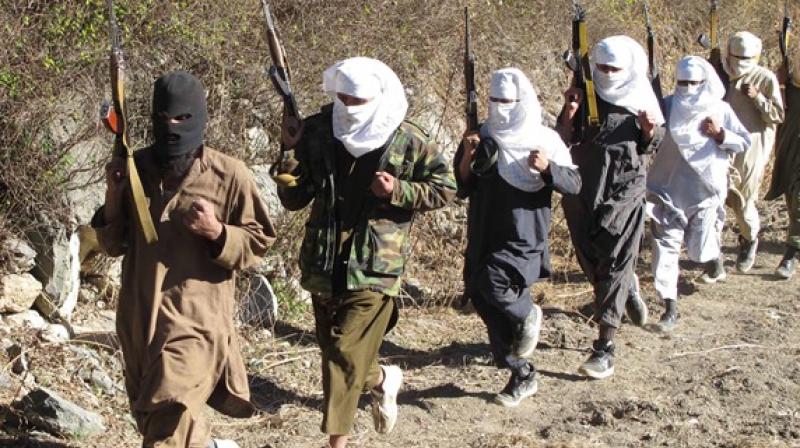Al-Qaida returns?
September 5, 2018 | Expert Insights

The extremist organisation is looking to reclaim its primacy in international militancy as the former Islamic State loses ground.
NATO believe that more Al-Qaida sponsored attacks could be expected in Afghanistan and in the Middle East.
Background
The Islamic State of Iraq and the Levant also known as ISIL and ISIS that is considered a Salafi jihadist militant group and unrecognized proto-state that follows a fundamentalist, Wahhabi doctrine of Sunni Islam. It gained global prominence in early 2014 when it drove Iraqi government forces out of key cities in its Western Iraq offensive, followed by its capture of Mosul and the Sinjar massacre.
This group has been designated a terrorist organization by the United Nations and many individual countries. ISIL is widely known for its videos of beheadings of both soldiers and civilians, including journalists and aid workers, and its destruction of cultural heritage sites. The United Nations holds ISIL responsible for human rights abuses and war crimes and Amnesty International has charged the group with ethnic cleansing on a "historic scale" in northern Iraq.
In 2014 ISIS took over large parts of the city of Mosul and emerged as a prominent militant group in the world. It was in the Great Mosque of al-Nuri where ISIS’ leader Abu Bakr al-Baghdadi made his first and only public appearance and declared a “caliphate”.
Al-Qaida is a radical militant organisation which carried out the Sept. 11 attacks on the United States. The actions of Al-Qaida resulted in U.S.-led wars in Afghanistan and Iraq. U.S. forces killed al-Qaida’s leader, Osama bin Laden in 2011. Soon after, Islamic State, which is guided by a similarly extremist form of Sunni Islam, arose.
Analysis
Al-Qaida is trying to regain its primacy over international militancy as Islamic State loses ground, a senior NATO official said on Tuesday, seeing a potentially increased risk to the West from the groups’ rivalry.
However, Arndt von Loringhoven, NATO’s assistant secretary-general for intelligence and security, said Islamic State retained some personnel strength despite its combat losses, including fresh recruits among women and children.
“ISIS-Daesh weakening has provided al-Qaida with an opportunity to attempt to regain its former status,” Von Loringhoven says. He added: “While ISIL-Daesh has occupied the world’s attention for the last four-five year, al-Qaida has been quietly rebuilding its global networks and capabilities,” he said, citing activity in Kashmir, Afghanistan, Syria, Yemen, Somalia and North Africa.
“Rather like ISIL-Daesh, al-Qaida’s strategic aim is to regain leadership of like-minded militants and extremists. The competition for legitimacy, affiliates and recruits among the two major global extremist groups potentially increases the terrorism threat to NATO and our partners.”
Islamic State’s fiefdoms in Syria and Iraq have been largely dismantled in recent years by offensives launched by Damascus and Baghdad with the backing of various foreign coalitions.
NATO estimates that Islamic State’s peak strength of around 39,000 fighters in Syria and Iraq had been halved to between 18,000 and 20,000, most of them dispersed around the two countries and “gone underground”.
However, since the arrest in June of a Tunisian man suspected of planning a ricin attack in Germany, militants could increasingly try to turn to homemade chemical or biological arms or attacks using commercially available drones.
“A very worrisome trend is the group’s concerted effort to use propaganda to radicalize women and minors, who have emerged as a new target for recruitment relatively recently,” von Loringhoven concluded. “This trend may have led to increased involvement of women and minors in the planning and execution of a number of attacks, including in NATO countries,” he said.
Assessment
Our assessment is that ISIL is down but not out. The jihadists may be losing their territorial bases, but their ideology has not been vanquished. The group might continue to propagate its hateful ideas through social media. We feel that Al-Qaida may continue ISIL’s strategy of social media presence and coordinated “lone-wolf” attacks on Western targets.








Comments